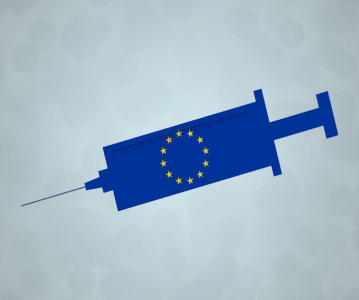Size doesn’t matter: How smaller deals are shaping healthcare M&A

Several mega-deals have made a splash in the pharma and life sciences industries over recent years – from AstraZeneca’s acquisition of Alexion for $39 billion to Gilead Sciences’ $21 billion purchase of Immunomedics. With ample capital available in the sector, it comes as no surprise that PwC forecasts M&A deals will reach $400 billion this year.
However, focus has increasingly been shifting from blockbuster deals and turning instead towards smaller collaborations and partnership agreements.
Mergers and acquisitions can offer benefits like access to new technology, diversification of product lines and improved economies of scale. When these deals take place between small and mid-sized companies, these benefits can be accessed more quickly and without the antitrust issues larger firms often face.
To get a sense of how smaller deals are shaping the M&A market, CPHI spoke to Dr Fintan Walton, CEO and Founder of PharmaVentures, the premier transaction advisory firm and a leading international company in partnering, M&A deals and strategic alliances. Fintan will also lead a panel discussion on the subject as part of the CPHI Webinar Series – Register here.


Do you expect to see the number of M&As in the life sciences industry continue to rise in 2022 and beyond?
At this stage, we are unsure of the trend due to the current geo-political situation. However, our industry is significantly transformative due to its innovative nature and so we believe that it will certainly endure as it has done in previous economic crises.
What are the key drivers of M&A amongst small to mid-sized life sciences companies?
The key drivers are the need to build critical mass, improve efficiencies and to gain access to the latest commercially significant innovations and technologies to dominate within a particular technological sector.
What are the advantages of M&A amongst small to mid-sized companies?
The advantage of M&A amongst these companies is simply their size. They tend not to come up against issues related to the various monopoly commissions. They tend to be easier to execute. They form the base for Private Equity firms in their buy and build strategies.
They tend to be driven by and led by the leading edge of technology and often the most significant in that respect.
How does strategy differ when an M&A is done with a small/mid-size company compared to a mega-deal?
Larger deals tend to have a higher visibility and so the strategy deployed tends to be riskier and therefore must be more carefully thought through. Larger M&As have higher profiles and tend to draw the attention of national governments and unions.
How is integration and talent retention approached by a small/mid-size company compared to a large company? Are there any challenges or benefits?
Integration is one of the biggest challenges and often underestimated, making it the riskiest part of a transaction. The larger the deal, the more complicated the integration task. It can often take years to complete for larger deals and can involve the disposal of products and subsidiaries for both economic and regulatory reasons. Retention of talent is a big challenge and can be expensive. With smaller deals, the C-suite and founders can be retained through earn outs, stock options and other inducements.
Has the drive towards digitisation impacted the M&A landscape with regards to small and medium-sized companies?
Digitisation has changed how due diligence is conducted by allowing remote access to Virtual Data Rooms. Information requests can be executed rapidly allowing the due diligence phase of a transaction to take place rapidly. This has been especially true for smaller M&A deals.
How has the COVID-19 pandemic impacted the M&A landscape?
The pandemic had little effect on the M&A landscape other than slowing some deals down. I think everyone in the industry was surprised by how unaffected it was.
How will increased regulation impact M&As involving small to medium-sized life sciences companies? (e.g., National Security and Investment Act in the UK and European Commission’s change to merger controls on cross-border M&A activity)
Increased regulation will have the biggest impact on larger M&A deals. This is why smaller M&A transactions are more likely to remain dominant and most transformative.

Related News
-
News Patients vs Pharma – who will the Inflation Reduction Act affect the most?
The Inflation Reduction Act brought in by the Biden administration in 2022 aims to give better and more equitable access to healthcare in the USA. However, pharma companies are now concerned about the other potential costs of such legislation. -
News CPHI Podcast Series: What does the changing US Pharma market mean for industry and patients alike?
In this week's episode of the CPHI Podcast Series Lucy Chard, Digital Editor for CPHI Online is joined by James Manser to discuss the political and market changes in the US pharma field. -
News CPHI Barcelona Annual Report illuminates industry trends for 2024
The CPHI Annual Survey comes into it’s 7th year to report on the predicted trends for 2024. Over 250 pharma executives were asked 35 questions, with their answers informing the industry landscape for the next year, spanning all major pharma marke... -
News Which 10 drugs are open to price negotiation with Medicare in the USA?
The Centres for Medicare & Medicaid Services, under the Biden administration in the USA, has released a list of the 10 drugs that will be open to price negotiations as part of the new legislation under the Inflation Reduction Act (IRA). -
News EU Medical Devices Regulation causes unintended disappearances of medical devices for children, doctors state
Doctor groups and associations have appealed to the EU to correct the EU Medical Devices Regulation law that may cause unintended shortages of essential drug and medical devices for children and rare disease patients. -
News 10 Major Drug Approvals So Far in 2023
Last year, 37 novel drugs were approved by the FDA, this was a high number for such a category, and covered many fields including oncology, demonstrating how promising further research is, and how it is only continuing to build. To date, there are alre... -
News Detecting Alzheimer's disease with a simple lateral flow test
A novel rapid diagnostic test for early-stage Alzheimer's disease has been developed using a biomarker binder from Aptamer Group along with technology from Neuro-Bio, the neurodegenerative disease experts. -
News CPHI Podcast Series: outsourcing and manufacturing trends
Listen to the CPHI Podcast Series this June to hear Gil Roth of the PBOA speak with Digital Editor Lucy Chard about the biggest trends and topics to watch in pharma outsourcing and manufacturing at the minute.
Position your company at the heart of the global Pharma industry with a CPHI Online membership
-
Your products and solutions visible to thousands of visitors within the largest Pharma marketplace
-
Generate high-quality, engaged leads for your business, all year round
-
Promote your business as the industry’s thought-leader by hosting your reports, brochures and videos within your profile
-
Your company’s profile boosted at all participating CPHI events
-
An easy-to-use platform with a detailed dashboard showing your leads and performance







